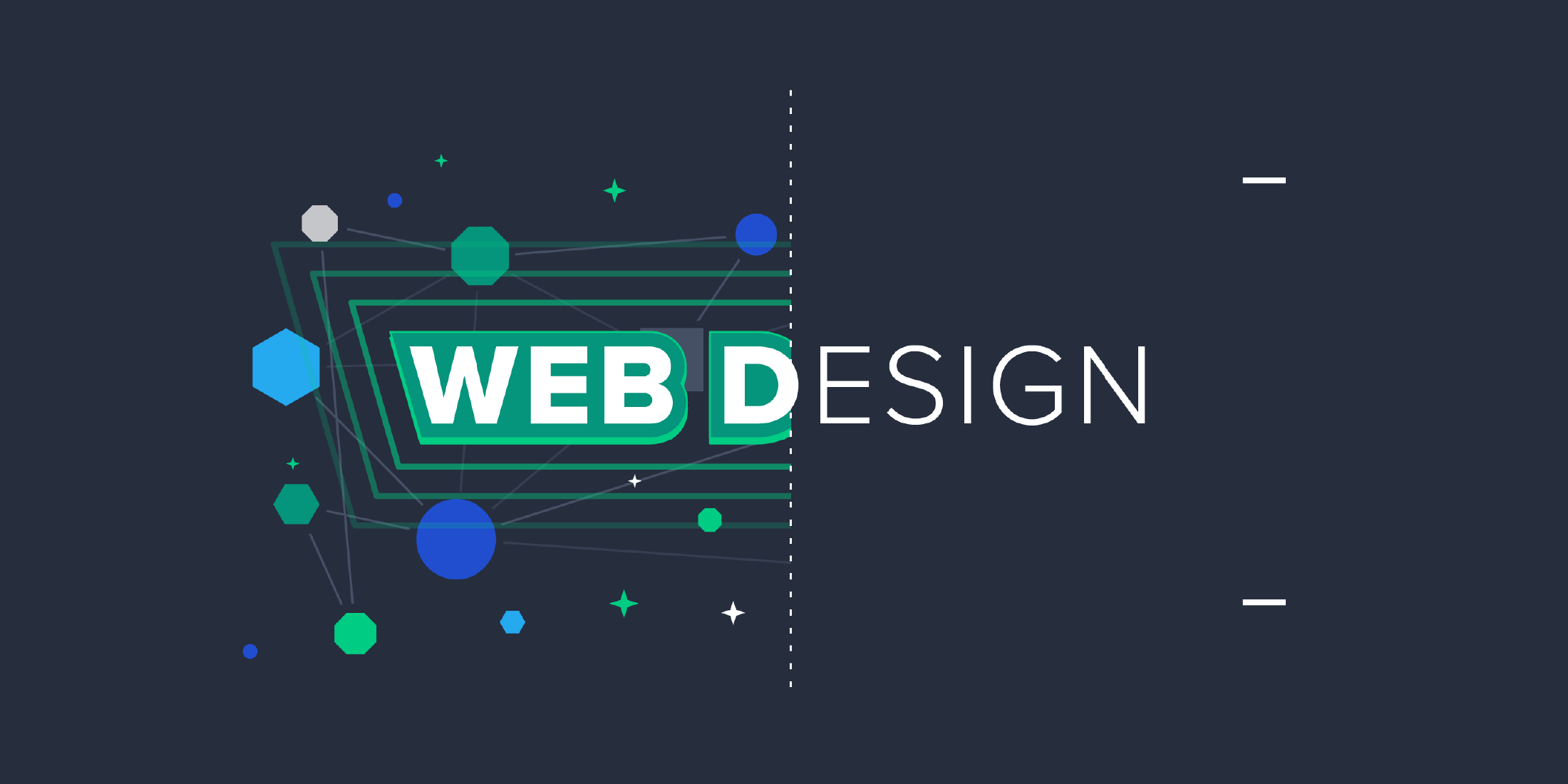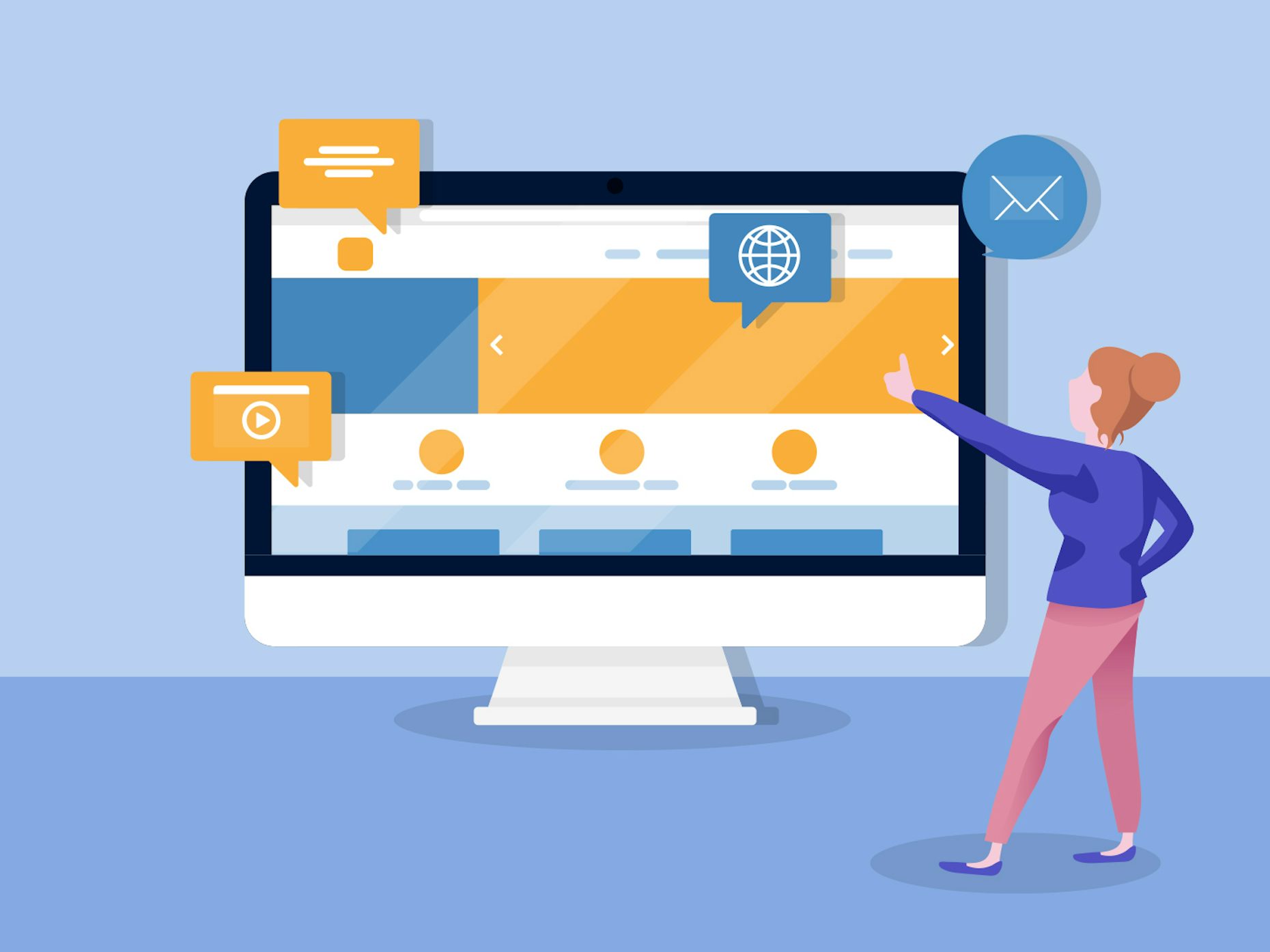All Categories
Featured
Table of Contents
- – Custom Website Design And Marketing - Inmotion...
- – Design Principles - U.s. Web Design System (U...
- – Web Design - The First 100 Years - Idle Words...
- – Web Design - Linkedin Learning, Formerly Lynd...
- – Web Design And Engineering Major - Santa Clar...
- – Law Firm Website Design, Attorney Web Design,...
- – Google Web Designer - Home Tips and Tricks:
- – Website Design - Best Ecommerce Web Design B...
- – Web Design Company In Orlando, Florida And B...
- – What Can I Do With A Web Design And Developm...
- – Web Design Tutorials By Envato Tuts+ Tips an...
Custom Website Design And Marketing - Inmotion Hosting Tips and Tricks:
Quick summary Use and the utility, not the visual design, determine the success or failure of a website. Considering that the visitor of the page is the only person who clicks the mouse and therefore decides whatever, user-centric design has developed as a basic approach for successful and profit-oriented web style - web design frederick md.
and the energy, not the visual style, identify the success or failure of a site. Considering that the visitor of the page is the only individual who clicks the mouse and for that reason decides whatever, user-centric style has ended up being a standard method for successful and profit-oriented web design. After all, if users can't use a feature, it might too not exist.
g. where the search box must be placed) as it has currently been done in a variety of short articles; instead we focus on the approaches which, used correctly, can cause more advanced design decisions and streamline the procedure of viewing presented information. Please discover that you might be thinking about the usability-related short articles we've released prior to: Principles Of Excellent Website Style And Effective Web Style Guidelines, In order to use the concepts properly we initially need to comprehend how users connect with websites, how they believe and what are the standard patterns of users' behavior.
Design Principles - U.s. Web Design System (Uswds) Tips and Tricks:
Visitors glimpse at each new page, scan some of the text, and click on the very first link that captures their interest or slightly looks like the important things they're searching for. In reality, there are big parts of the page they do not even look at. Many users look for something interesting (or useful) and clickable; as quickly as some promising candidates are discovered, users click.
If a page supplies users with high-quality content, they are ready to jeopardize the content with advertisements and the style of the website. This is the reason that not-that-well-designed sites with high-quality content get a great deal of traffic over years. Material is more vital than the design which supports it.

Extremely simple concept: If a website isn't able to satisfy users' expectations, then designer failed to get his job done correctly and the business loses money. The greater is the cognitive load and the less user-friendly is the navigation, the more prepared are users to leave the website and search for alternatives.
Web Design - The First 100 Years - Idle Words Tips and Tricks:
Neither do they scan website in a direct style, going sequentially from one website area to another one. Rather users satisfice; they select the first affordable option. As soon as they find a link that appears like it might result in the objective, there is an excellent possibility that it will be right away clicked.
It does not matter to us if we understand how things work, as long as we can utilize them. If your audience is going to act like you're developing billboard, then design great signboards." Users wish to be able to manage their internet browser and depend on the consistent information discussion throughout the site.
If the navigation and website architecture aren't intuitive, the number of enigma grows and makes it harder for users to comprehend how the system works and how to obtain from point A to point B. A clear structure, moderate visual hints and quickly recognizable links can assist users to discover their path to their objective.
Web Design - Linkedin Learning, Formerly Lynda.com Tips and Tricks:

Given that users tend to check out websites according to the "F"-pattern, these 3 declarations would be the first elements users will see on the page once it is filled. The design itself is simple and instinctive, to understand what the page is about the user requires to search for the response.
When you've attained this, you can interact why the system is helpful and how users can take advantage of it. Individuals will not utilize your website if they can't find their way around it. 2. Don't Misuse Users' Persistence, In every task when you are going to use your visitors some service or tool, attempt to keep your user requirements very little.
Novice visitors want to, not filling long web forms for an account they may never ever utilize in the future. Let users check out the website and find your services without forcing them into sharing private data. It's not reasonable to require users to enter an e-mail address to check the function.
Web Design And Engineering Major - Santa Clara University Tips and Tricks:
And that's what you desire your users to feel on your web website. The registration can be done in less than 30 seconds as the kind has horizontal orientation, the user doesn't even require to scroll the page.
A user registration alone is sufficient of an obstacle to user navigation to cut down on inbound traffic. Handle To Focus Users' Attention, As sites offer both static and dynamic content, some aspects of the user interface draw in attention more than others do.
Focusing users' attention to specific areas of the site with a moderate use of visual elements can assist your visitors to obtain from point A to point B without thinking about how it in fact is supposed to be done. The less concern marks visitors have, the they have and the more trust they can develop towards the company the site represents.
Law Firm Website Design, Attorney Web Design, Lawyer ... Tips and Tricks:
4. Aim For Function Direct exposure, Modern web designs are generally criticized due to their method of guiding users with visually appealing 1-2-3-done-steps, big buttons with visual results and so on. From the style viewpoint these elements really aren't a bad thing. On the contrary, such as they lead the visitors through the site content in a very basic and user-friendly way.
The site has 9 main navigation alternatives which are noticeable at the very first glance. The choice of colors may be too light, though. is a fundamental principle of effective interface style. It does not truly matter how this is achieved. What matters is that the content is well-understood and visitors feel comfy with the way they communicate with the system.
Rather a cost: just what visitors are looking for. An ideal solution for efficient writing is touse short and concise phrases (come to the point as quickly as possible), usage scannable design (categorize the material, use several heading levels, use visual elements and bulleted lists which break the circulation of uniform text blocks), use plain and objective language (a promo doesn't require to sound like advertisement; give your users some sensible and objective reason why they must use your service or remain on your site)6.
Google Web Designer - Home Tips and Tricks:
Users are hardly ever on a website to enjoy the design; in addition, for the most part they are searching for the info despite the style - web design frederick md. Aim for simplicity instead of complexity. From the visitors' perspective, the finest website style is a pure text, with no advertisements or further material blocks matching exactly the question visitors used or the content they have actually been trying to find.
Finch clearly provides the information about the site and gives visitors a choice of alternatives without overcrowding them with unneeded material. Not only does it assist to for the visitors, however it makes it possible to perceive the info provided on the screen.
Complex structures are more difficult to read, scan, examine and deal with. If you have the choice in between separating 2 style segments by a visible line or by some whitespace, it's normally better to utilize the whitespace option. (Simon's Law): the better you manage to provide users with a sense of visual hierarchy, the much easier your content will be to view.
Website Design - Best Ecommerce Web Design By Shopify Tips and Tricks:
The exact same conventions and guidelines should be applied to all elements.: do the most with the least quantity of hints and visual elements. Clarity: all elements need to be designed so their meaning is not ambiguous.
Conventions Are Our Pals, Standard design of website aspects doesn't result in an uninteresting web site. It would be an use headache if all websites had various visual presentation of RSS-feeds.
comprehend what they're anticipating from a website navigation, text structure, search positioning etc. A typical example from functionality sessions is to equate the page in Japanese (assuming your web users do not understand Japanese, e. g. with Babelfish) and offer your use testers with a job to discover something in the page of different language.
Web Design Company In Orlando, Florida And Bangor, Maine Tips and Tricks:
Steve Krug suggests that it's better to, however take advantages of conventions when you don't. 10. Test Early, Test Often, This so-called TETO-principle must be used to every web design project as use tests typically offer into significant issues and concerns connected to an offered design. Test not too late, not insufficient and not for the incorrect factors.
Some important points to keep in mind: according to Steve Krug, and testing one user early in the task is better than testing 50 near completion. Accoring to Boehm's very first law, mistakes are most frequent during requirements and style activities and are the more expensive the later on they are removed.
That means that you create something, test it, repair it and then test it once again. There may be problems which haven't been found throughout the first round as users were virtually blocked by other issues. use tests. Either you'll be indicated the issues you have or you'll be indicated the absence of significant style flaws which remains in both cases an useful insight for your job.
What Can I Do With A Web Design And Development Degree? Tips and Tricks:

This holds for designers as well. After you've worked on a site for couple of weeks, you can't observe it from a fresh point of view any longer. You understand how it is constructed and for that reason you understand exactly how it works you have the wisdom independent testers and visitors of your site wouldn't have.
It can be connected to other areas such as graphic design, user experience, and multimedia arts, however is more aptly seen from a technological standpoint. It has actually become a big part of people's everyday lives. It is hard to imagine the Web without animated graphics, different designs of typography, background, videos and music.

During 1991 to 1993 the World Wide Web was born. Text-only pages might be seen utilizing an easy line-mode web browser. There had been no integrated approach to graphic style elements such as images or noises.
Web Design Tutorials By Envato Tuts+ Tips and Tricks:
The W3C was developed in October 1994 to "lead the Internet to its full capacity by establishing typical protocols that promote its advancement and ensure its interoperability." This dissuaded any one company from monopolizing a propriety browser and shows language, which could have altered the result of the Internet as a whole.
As this has happened the innovation of the web has also moved on. There have also been significant modifications in the way individuals use and access the web, and this has actually changed how websites are designed.
Learn more about Lovell Media Group LLC or TrainACETable of Contents
- – Custom Website Design And Marketing - Inmotion...
- – Design Principles - U.s. Web Design System (U...
- – Web Design - The First 100 Years - Idle Words...
- – Web Design - Linkedin Learning, Formerly Lynd...
- – Web Design And Engineering Major - Santa Clar...
- – Law Firm Website Design, Attorney Web Design,...
- – Google Web Designer - Home Tips and Tricks:
- – Website Design - Best Ecommerce Web Design B...
- – Web Design Company In Orlando, Florida And B...
- – What Can I Do With A Web Design And Developm...
- – Web Design Tutorials By Envato Tuts+ Tips an...
Latest Posts
Awwwards - Website Awards - Best Web Design Trends Tips and Tricks:
Web Design Vs. Web Development - Upwork Tips and Tricks:
Learning Web Design: A Beginner's Guide To Html, Css ... Tips and Tricks:
More
Latest Posts
Awwwards - Website Awards - Best Web Design Trends Tips and Tricks:
Web Design Vs. Web Development - Upwork Tips and Tricks:
Learning Web Design: A Beginner's Guide To Html, Css ... Tips and Tricks: